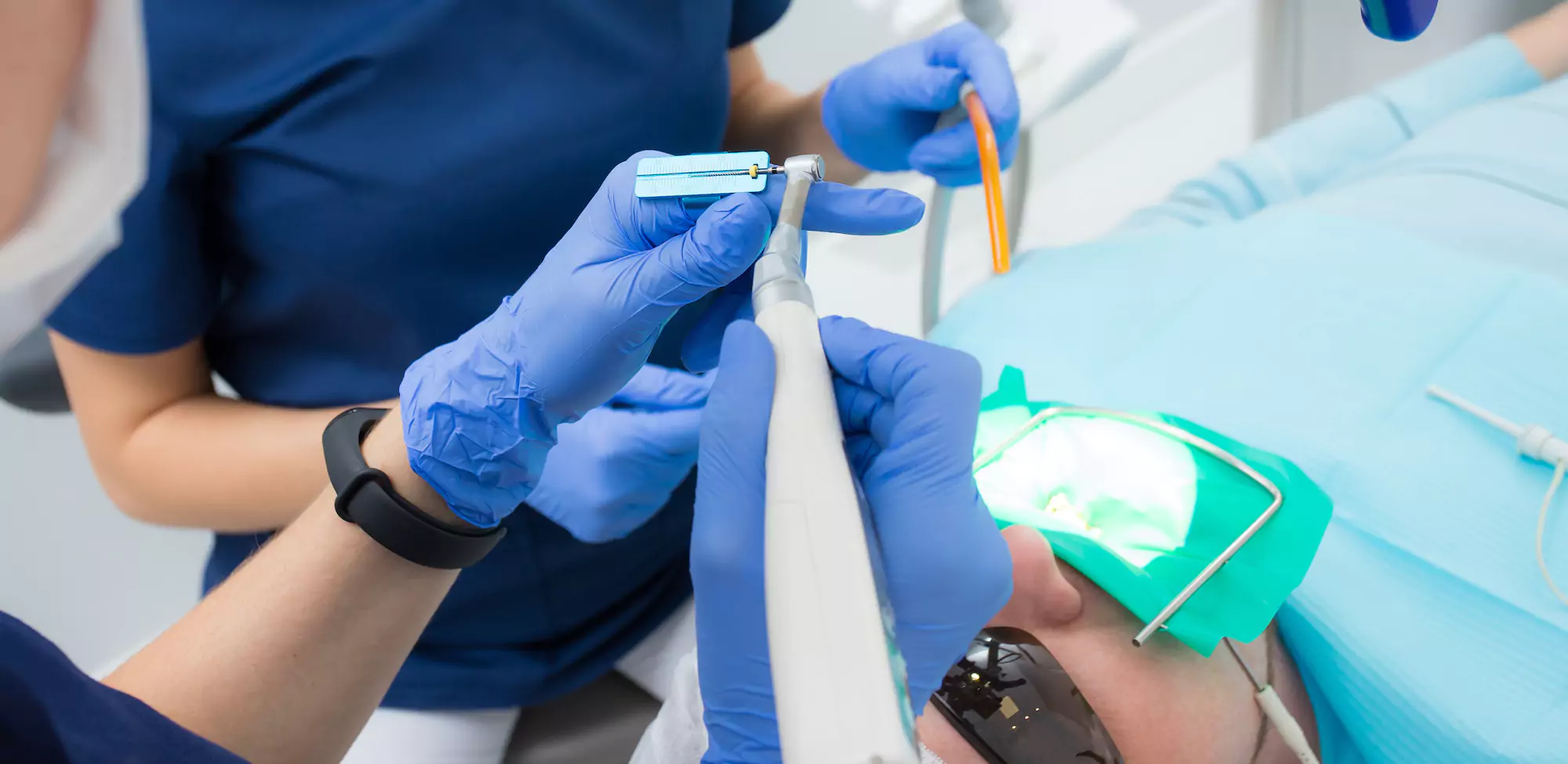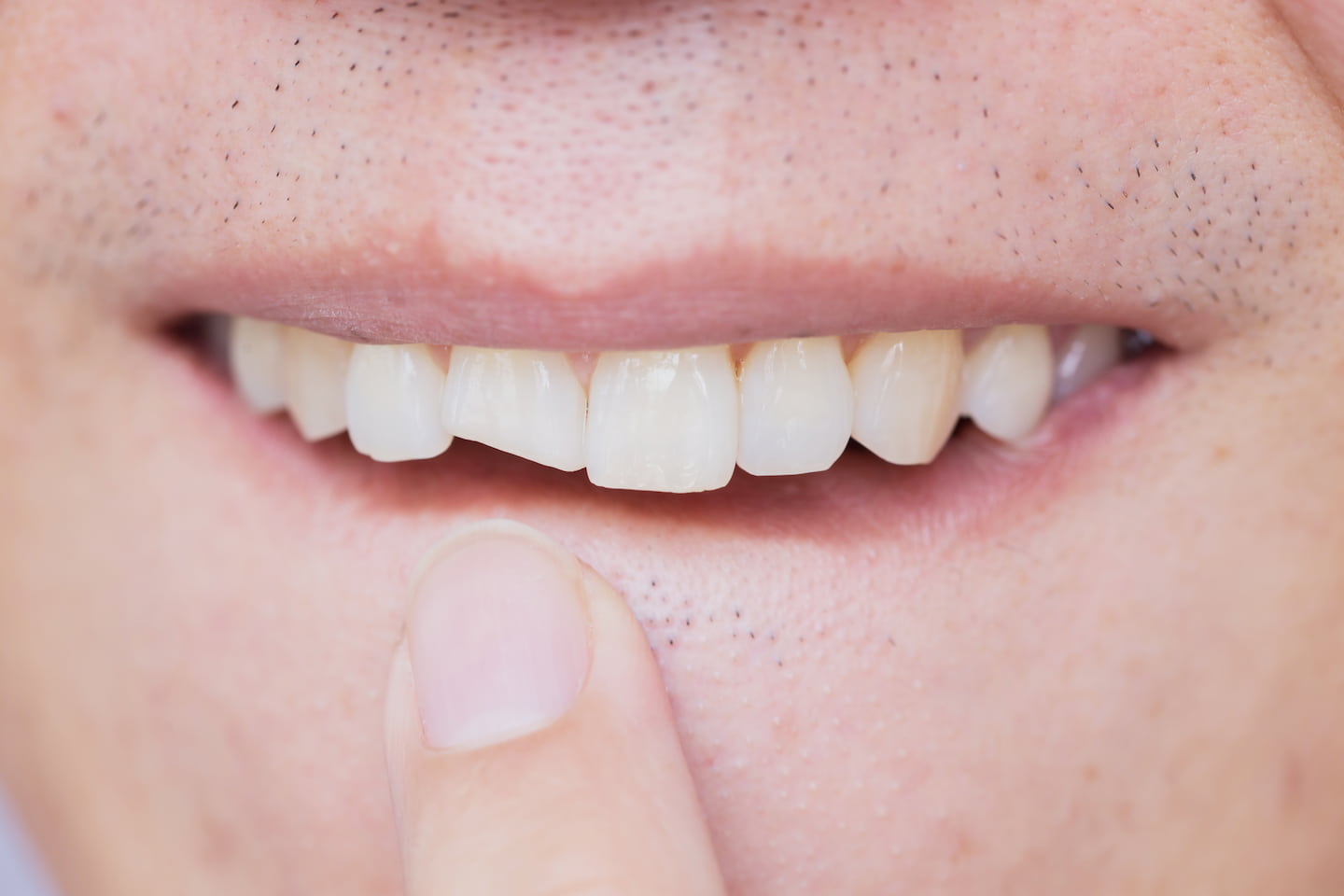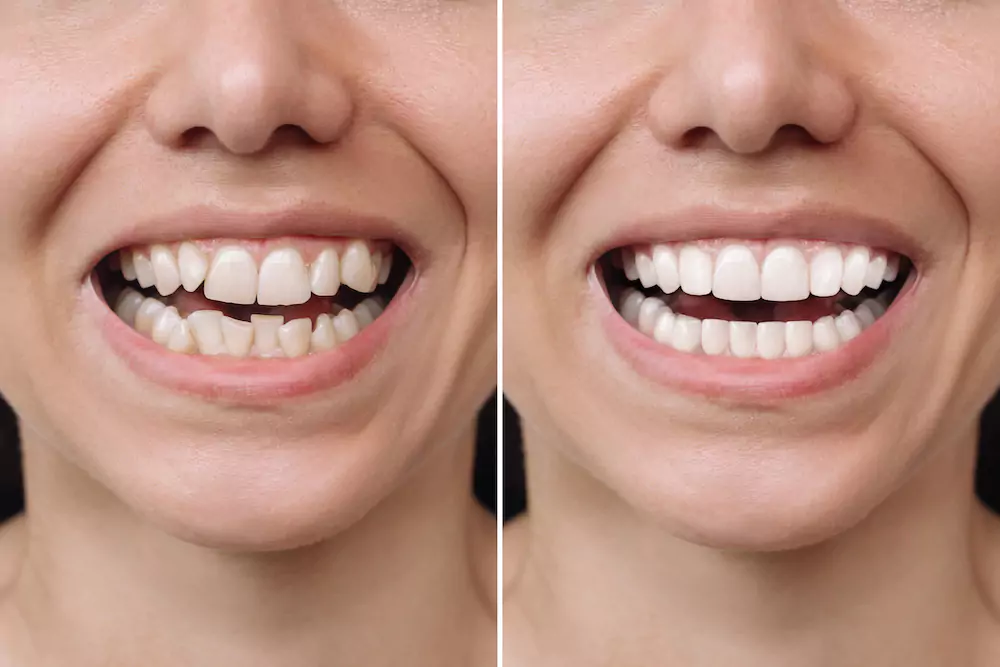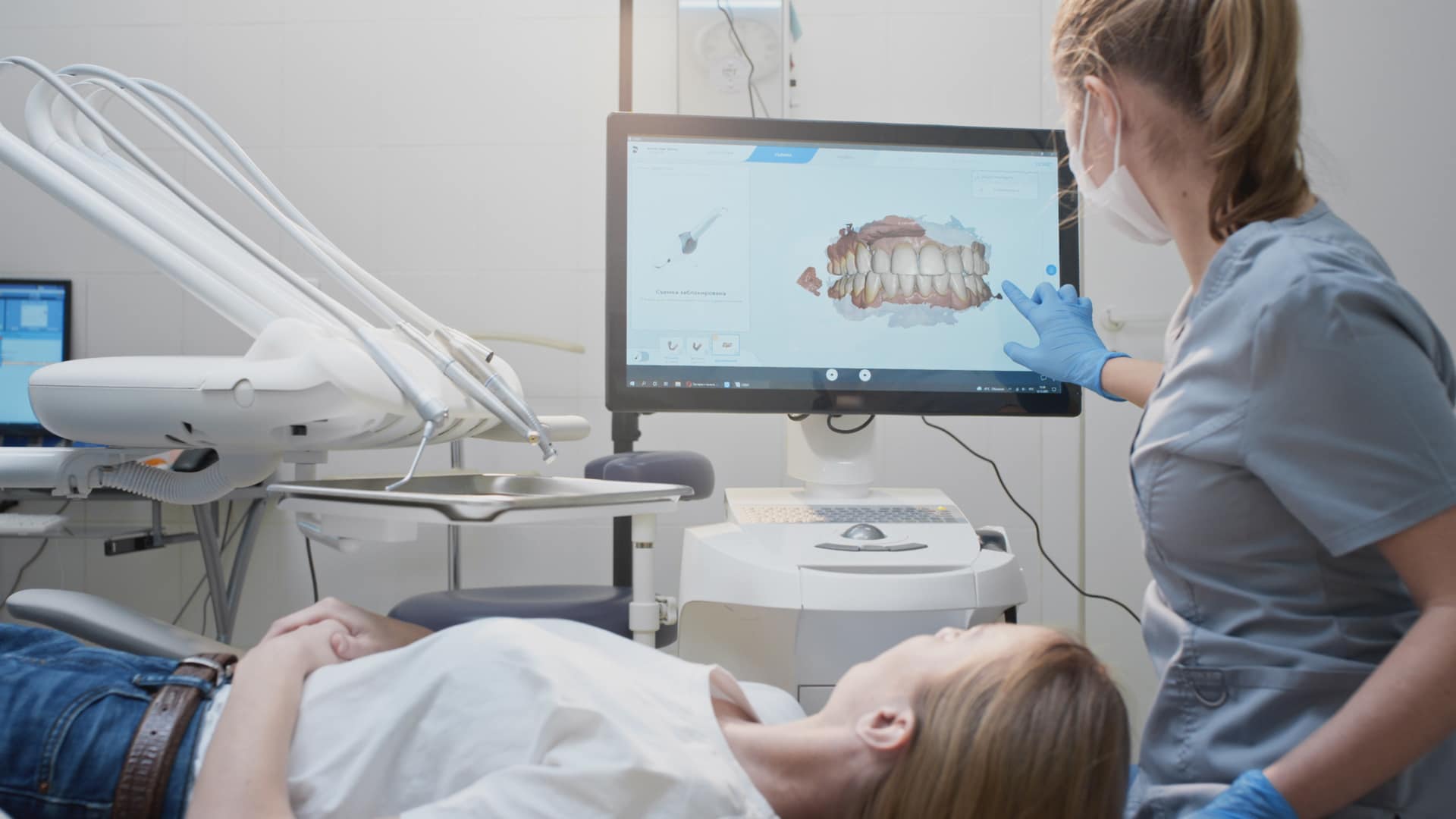
Does Root Canal Treatment Hurt?
Does root canal treatment hurt? No, as you are given local anaesthetic during the procedure.
However, prior to requiring root canal treatment you will likely experience some discomfort and pain which makes the procedure necessary.
I believe education is a key part of eliminating anxiety before any dental procedure, so this article will cover everything you need to know about root canal treatment so you can understand why you do not need to feel intimidated if you need a root canal treatment.
Quick Summary
- Root canal treatment can be comfortable and virtually painless
- It is the most effective treatment for an infected tooth
- It is straightforward and involves numbing the area, clearing away infected tissue, filling the tooth, and sealing it
- Root canal treatment can be done in less than an hour for each appointment in most cases
- If an infected tooth is ignored, you are at risk of losing the tooth or allowing the infection to spread and cause additional complications
- Proper root canal treatment aftercare can minimise discomfort and promote fast healing
- A proper oral hygiene routine and regular visits to your dentist are the best ways to prevent needing root canal treatment
Does Root Canal Treatment Hurt?
If you asked how bad does a root canal hurt from 1-10, the answer would be in the very low end. The procedure can be virtually painless.
I’ve had many patients report that getting root canal treatment was no more uncomfortable than getting a filling.
Every individual will have a unique pain tolerance, but I strive to make root canal treatment as pain-free as possible for every patient I treat.
I take extensive precautions to ensure the most comfortable root canal treatment possible, including:
- Keeping the patient informed before, during, and after the procedure so they know exactly what to expect
- Numbing the area completely to minimise any discomfort
- Educating patients on the best aftercare for root canal treatment to minimise discomfort and prevent complications
- Creating a calm, relaxing atmosphere in the treatment room
Many patients tell me that they only felt a moderate degree of pressure during treatment but no pain. This is the feedback I aim to hear every time I perform root canal treatment.
After root canal treatment, I tell my patients to expect some mild soreness and discomfort for a few days. This can be minimised with proper root canal aftercare treatment, which I’ll cover later in this article.
If you are feeling especially anxious about getting root canal treatment, please let me know ahead of time so I can work through your worries with you and take extra steps to put you at ease.
You May Also Like: How To Calm Dental Anxiety: Common Causes And Tips
When Is Root Canal Treatment Necessary?
If severe tooth decay goes untreated, or if a tooth experiences trauma, the centre of the tooth can become damaged. This damage can cause the nerves inside the tooth to become infected or die.
To prevent serious complications, such as losing a tooth, the infected nerve tissue must be cleared away with root canal treatment.
How Is Root Canal Treatment Performed?
I’ve noticed that root canal treatment is often considered a painful, overwhelming, complicated dental procedure. But root canal treatment is surprisingly simple.
First, the affected area is completely numbed. Then, the infected nerve tissue is removed from the affected tooth. The area is then thoroughly disinfected and cleaned.
The tooth is then filled and sealed to restore function and prevent further decay to the tooth.
How Long Does Root Canal Treatment Take?
The majority of root canals can be completed in less than an hour per appointment. More complex cases can take between 60 to 90 minutes.
Most root canal treatments will require two to three appointments to complete. Some more complicated cases will require additional appointments.
Learn More: 5 Things to Know About Root Canals
What to Expect After Root Canal Treatment
With such a negative reputation, it doesn’t surprise me when patients assume the recovery after root canal treatment will be a long, painful process. Fortunately, recovery is usually fairly simple and you should be feeling almost completely normal within several days to a week after the procedure, especially with appropriate aftercare.
I make sure to educate my patients on exactly how to care for their mouth following root canal treatment, including what to eat, what not to eat, tips for minimising discomfort, and other ways to support the recovery process.
I always give my patients an easy-to-follow aftercare plan to help them heal as quickly and painlessly as possible. I’m also available if any concerns or questions come up following your procedure.
After root canal treatment, you can expect some mild sensitivity, soreness, swelling, and discomfort, but it should disappear within a few days.
To ensure proper healing after root canal treatment, I advise following these steps:
- Do not eat for at least several hours after your root canal treatment (this allows the filling to harden and gives the numbness time to wear off)
- Make sure you get enough rest
- Do not smoke
- Avoid consuming alcohol
- Avoid hard or sticky foods
- Carefully gargle with warm salt water as advised by your dentist
- Take any prescribed antibiotics, over-the-counter pain meds, or prescription pain medication according to your dentist’s recommendations
- Avoid hot or spicy beverages or foods as they can worsen swelling or discomfort
- Do not use a straw to drink
- Avoid chewing on non-food objects (ice, pens, pencils, etc.)
- When you do eat, opt for healthy foods to support your recovery
FAQs
How bad does root canal treatment hurt 1-10?
When my patients ask me to rate how painful a root canal is on a scale from 1 to 10, I tell them it depends entirely on their pain tolerance. While it’s impossible for me to put a number on it, I have had many patients report to me that their discomfort during root canal treatment was extremely low, around a 1 or 2.
One of my favourite patient experiences was a man in his 40s who was extremely worried about the procedure. Despite how nervous he was about the root canal treatment, he knew he had to address the severe infection that had developed.
When the procedure was complete, he asked me, “Was that all?”. He could not believe how simple the treatment ended up being. That kind of reaction is what I aim for every time I treat a patient.
What happens if I don’t get root canal treatment?
If the nerve inside of your tooth is infected and you ignore it, you are risking serious complications.
If the damaged pulp is not cleared away, you are at risk of:
- Losing the infected tooth
- Bone loss
- Allowing the infection to spread to surrounding teeth
- Severe pain
- Changes to your bite
- Trouble chewing and speaking
- Shifting of surrounding teeth
Root canal treatment is the most effective way to treat infected nerve tissue. If you are experiencing severe decay or signs of a tooth infection, contact a dentist immediately for evaluation.
Can root canal treatment be prevented?
Here are the tips I recommend for maintaining your oral health and decreasing your risk of needing root canal treatment:
- Brush your teeth twice a day using gentle circular motions and a soft-bristled toothbrush
- Floss daily
- See your dentist for consistent general dental checkups (early detection is one of the most effective ways to prevent oral health complications, such as decay and infections that require root canal treatment)
- Ask your dentist about a custom-made mouthguard to protect your teeth against trauma during contact sports
- Eat a healthy, balanced diet full of fruits and vegetables, and limit your intake of sugary, processed foods
Learn More: How Does Sugar Affect Oral Health
Will I need a crown after root canal treatment?
A filling can sometimes be sufficient to replace the infected nerve tissue that is cleared away during root canal treatment. However, if a filling isn’t enough, it could leave the tooth vulnerable to more decay or tooth fracture.
In these cases, a crown may be recommended to restore the tooth and guard it against decay and tooth fracture. I find that a crown is needed most often on back teeth after root canal treatment due to the higher force these teeth undergo during chewing.
I always discuss all of these details before the root canal procedure so my patients know exactly what to expect.
How do I know if I need root canal treatment?
Only a dentist can confirm if you need root canal treatment, but there are warning signs to watch for.
If you are dealing with any of the following symptoms, contact your dentist immediately:
- Trauma or injury to a tooth (chips and cracks can leave you vulnerable to injection and decay)
- Severe or untreated tooth decay
- Tooth discolouration
- Darkening of your gums
- Extreme sensitivity to hot or cold foods or beverages
- Severe pain during chewing or biting
- Swelling or tenderness around a tooth
Conclusion
Although root canal treatment is a common, highly effective dentistry procedure, many patients are intimidated when they hear they need root canal treatment.
Our dentists provide expert root canal treatment in Canning Vale to help you enjoy your healthiest smile with our range of comprehensive family dental services.
I strive to create a relaxed, welcoming atmosphere for my patients during all treatments, but especially during procedures that have a reputation for being painful.
From your initial appointment throughout the procedure, I’m here to reassure you and keep you as comfortable as possible. I strive to make root canal treatment as painless as possible for every patient I work with.
If you are experiencing signs of tooth decay or tooth infection, please contact us with any questions or concerns. We are happy to discuss your questions or set up a consultation with one of our caring dentists.


